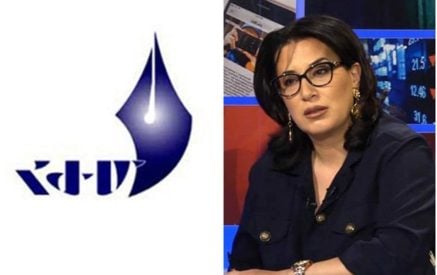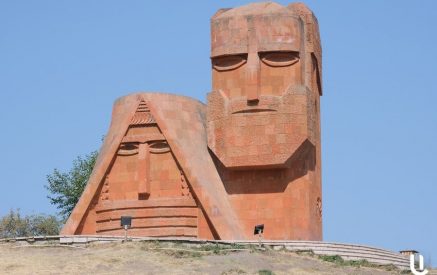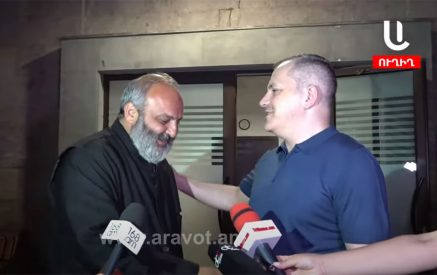One of the prominent propaganda tales of the Armenian government is that Samvel Shahramanyan, who supposedly stopped the armed resistance and signed the decree for the final dissolution of Artsakh, is to blame for the final loss of Artsakh. It is assumed that the Artsakh Defense Army alone should have brought the armed forces of Azerbaijan and Turkey to their knees and forced them to sign capitulation. Propagandists of the government also say that Azerbaijan agreed to give Artsakh the status of an autonomous republic in 2022-23.
I am not particularly interested in propaganda nonsense – that is a matter for the study of political technologists. And experts in the field claim that as long as they swallow the lie, it can be repeated, no matter how absurd.
However, I am interested in a more fundamental, methodological question. I recently talked with the philosopher Ashot Voskanyan, who expressed a remarkable idea: most Armenian historians have only two explanations for any negative course in our entire history: a/ we were disunited, b/ there were traitors among us.
For example, why, according to that logic did Tigran the Great lose to the Roman Empire? Well, of course, because there were traitors among the Armenian princes. If it were not for the “internal Turk,” the “Armenian scum,” Tigran the Great would have become the Emperor of Rome.
Read also
If we read any textbook on the history of Soviet and independent Armenia, we will see that our history consists almost entirely of “disunions” and betrayals. And since several generations have been brought up in that spirit, it is clear that political discussions will proceed based on mutual accusations of treason. The one who can “feed” that lie about the opponent is the winner.
This simplistic approach to history rejects, in my opinion, the essential feature that decision-makers should display, which is to evaluate and calculate the natural balance of forces, keeping in mind the objective realities. In that case, it is clear that a wrong decision taken at every “crossroad” or “nodal point” leads to the irreversible deterioration of the situation.
In our case, the classic example is, of course, the situation of 1997-98, when the West and Russia, having normal relations with each other, could guarantee the peaceful settlement of the Karabakh issue, including the de-facto sovereignty of Artsakh through two roads connecting Armenia.
Today, in the conditions of an actual world war, no matter what agreement is signed, no one can guarantee its fulfillment.
Let us be united and patriots (not traitors)” – this is the central message of official Armenian historiography. I would add, “Let’s have a little more sense.”
ARAM ABRAHAMYAN























































